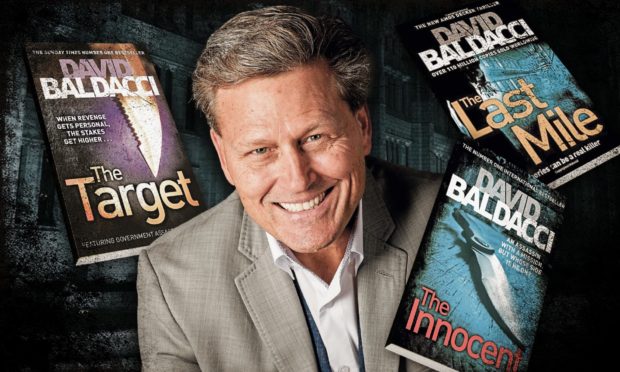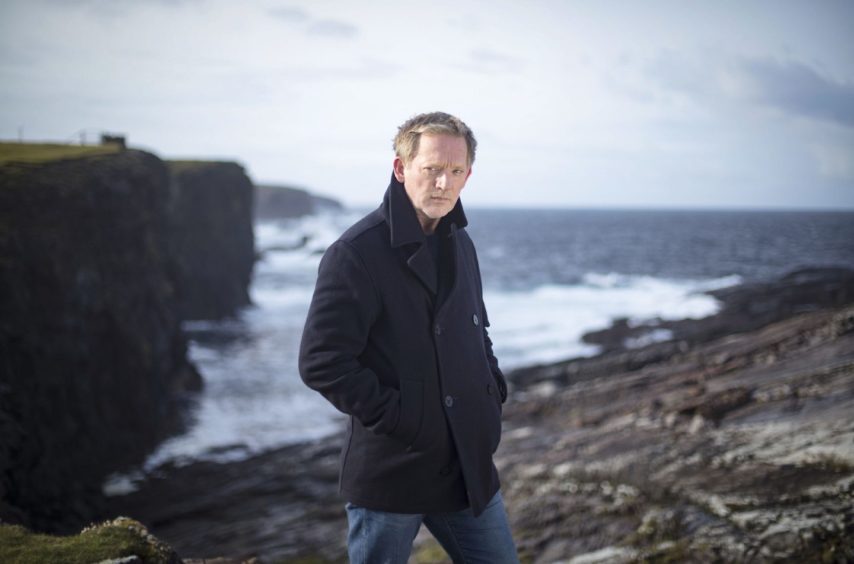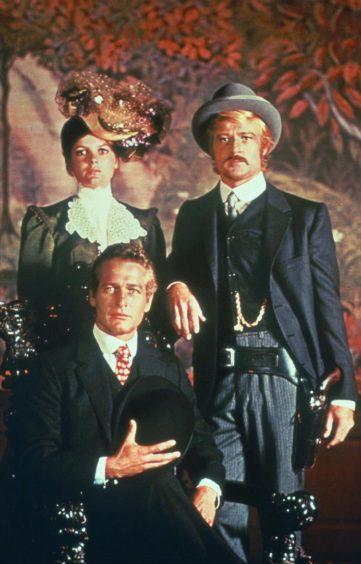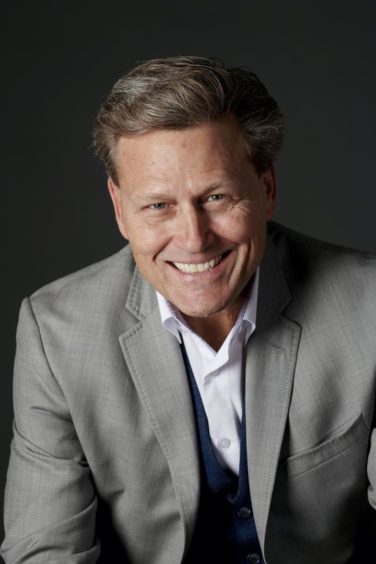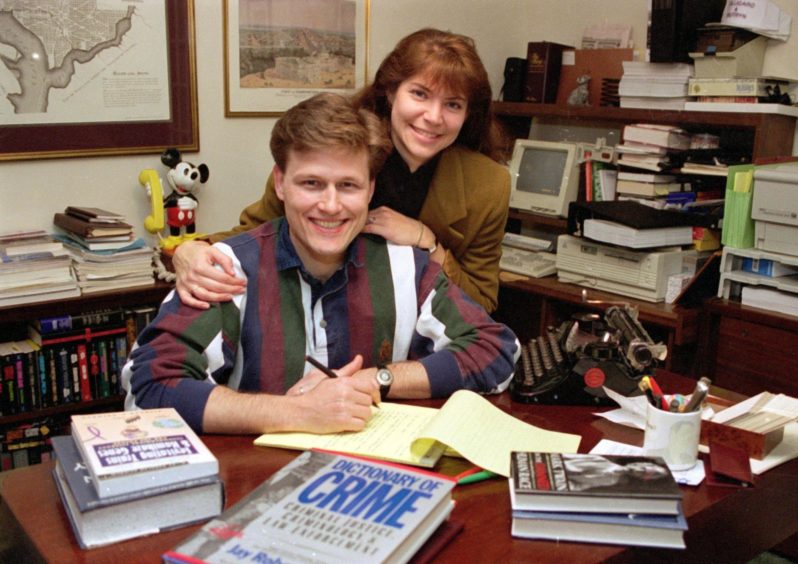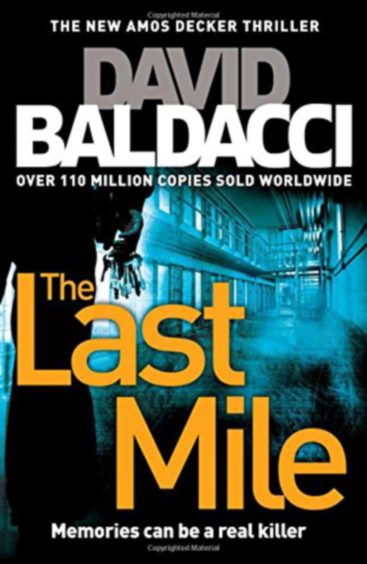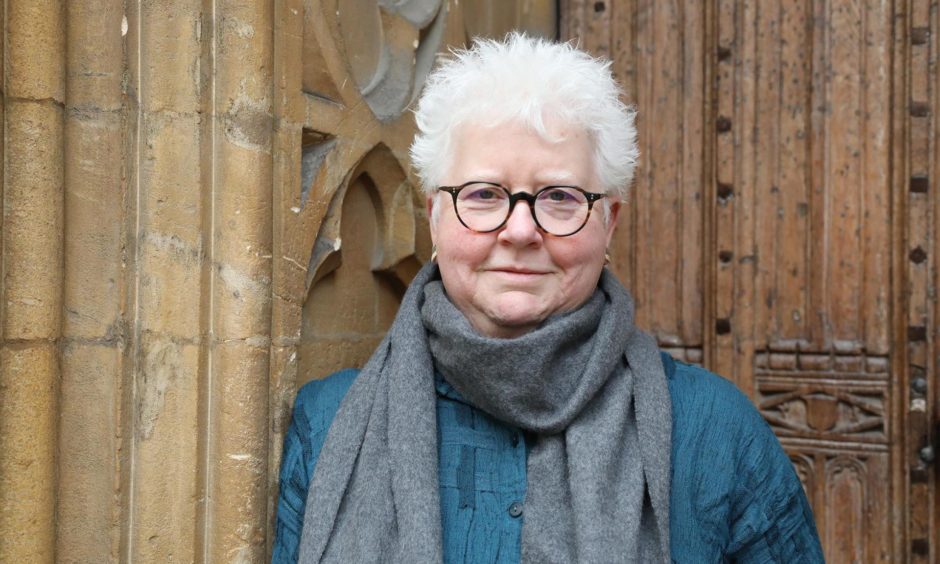US author David Baldacci is a global crime-writing superstar, his acclaimed thriller series have sold more than 150 million copies around the world, topped booked charts and been translated into 45 languages – and he’s a huge fan of TV detective series, Shetland.
So while the Virginia-based author is delighted to make his debut at Aberdeen’s Granite Noir festival this weekend, it’s tinged with disappointment he can’t be here in person to tour the country because the crime-writing festival is online this year.
“My wife and I have always wanted to explore Scotland more,” said the writer, described as one of the world’s favourite story-tellers, who has visited Scotland before for book tours and festivals.
There are lot of writers in Scotland that I love and a lot of the television shows, like Shetland”
“Her grandmother’s maiden name was Fraser, so she has ties to Scotland. It is a place we have enjoyed reading about it and there are lot of writers in Scotland that I love and a lot of the television shows, like Shetland. Although that is way up in the water, it is a very atmospheric place.”
No doubt, David will be delighted to learn Shetland, starring Doug Henshall, will resume filming on the island in April for two more series.
Coup for organisers
However, David’s appearance at Granite Noir on Sunday – a coup for organisers – is about his own work and is bound to be one of the highlights of the three-day digital event that kicks off on Friday.
The author will discuss his latest book, Daylight, the conclusion of a trilogy about FBI agent Atlee Pine and her fight to solve the disappearance of her twin sister, Mercy. But he wants to clarify one small point, first.
He said: “I did a Tweet and probably I think people misread it. Pine will be back after this last book. What I meant was that it was going to be the conclusion of the search for her sister, Mercy Pine.
“But Atlee is a great character and I want to keep writing about her. This is the final book in the series on Mercy, everything is revealed at the end. People will come away knowing everything that has happened. And hopefully they will have enjoyed the ride.”
Pine is just the latest in a pantheon of characters Baldacci has created over his prestigious career. Other include Amos Decker, an FBI consultant with a perfect memory; John Puller, a combat veteran and military investigator and former Secret Service agents King and Maxwell.
The writer – whose first book Absolute Power was filmed by Clint Eastwood – says discovering new characters and switching between them keeps him fresh and compelling, avoiding the pitfall of falling into formula.
Fear is a great motivation
“One way I have found that really helps me to challenge myself is to start a new series of characters that are totally different from any character I have written before. So the Atlee Pine series, the Amos Decker series, the John Puller series, these are ways to get out of my comfort zone, reinvent myself as a writer, start off in a totally new direction and re-energise myself.
Every time I sit down to write a new book, I’m scared I’m not going to be able to bring the magic”
“I never say to myself, how did I do it last time. That’s not what you want to say to yourself as a writer, then you are just telling the same story, you’re just changing the names.“
Given that David is a household name in fiction and a global bestseller, it’s surprising to discover one of his other great motivations when he sits down to write is fear.
“Fear is a great antidote to complacency. Every time I sit down to write a new book, I’m scared I’m not going to be able to bring the magic. That gives you a little bit of an edge,” he said.
It was a view bedded in by acclaimed screenwriter, William Goldman, who won Oscars for his films Butch Cassidy And The Sundance Kid and All The President’s Men.
David said: “He wrote the screenplay for my first book turned into a movie, Absolute Power. I spent a lot of time with him. He said whenever a writer thinks he or she has figured out what they are doing, they might as well just hang it up because they have lost their edge as a writer. It’s that fear of not knowing, the fear of waking up one day and people have realised you have no idea what the hell you are doing.
“That really gives you an edge, a chip on your shoulder that makes you rise to another level. It enables you to write stuff that people want to read over and over again.”
The fear factor seems to be working, as David’s latest creation has again found success. This time though, the high-octane thrills belong in the past.
Cusp of country changing
“A new series I’ve started set in the 1940s with Aloysius Archer. The second book in that comes out in the spring, The Gambling Man. I love the 1940s era. There was a lot of bad about it. It was sexist, misogynistic, racist and all of that. But there was an element to it, particularly post World War Two, when we are on the cusp of the country changing after the terrible war.
“I love writing his character because, again, it’s a character I’ve never written before in a different time period I’ve never written before, when I wasn’t even alive. But it’s a time period that I love learning about, which is one reason why I like to bring Archer back. I love history and I feel like I’m writing a piece of history every time I write him.”
On the subject of history, David’s own story of how he became a writer is rooted in his childhood growing up in Richmond, Virginia, in the 1960s when his local library was his source of escape and entertainment.
“Even though I never left Richmond, as a child I got to see the whole world through books and I got to see people who didn’t look like me, dress like me, pray like me or think like me. But I really registered on that common humanity we had,” he said.
“I grew up in a very segregated south where blacks and whites were kept very much apart. I have a lot of people I grew up with who feel like, to this day, that is the way the world should be. I might have fallen into that, except for the fact I saw the world through books. That is what saved me and I believe that very much.”
It also sparked his rich imagination when he was the “neighbourhood make (stuff) up person” for him and his friends to keep them entertained.
“I organised all the adventures in the woods, the battles, the sagas we would go into”
He said: “I organised all the adventures in the woods, the battles, the sagas we would go into. I would direct all of that and come up with all of the stuff that we would go outside and play. I loved that. I loved coming up with stuff that didn’t exist before I thought of it.
Terrified but intrigued
“One day my mum gave me a journal and said: “Why don’t you start writing some of this stuff down and see if you like that.
”All of sudden I had this epiphany that, one, I could take all of this stuff that I would use to entertain myself and my friends and, two, I could write something down that would be there just like the books I went to the library to read. It was kind of like this combination that was perfect for me.”
Which explains becoming a writer… but why a mystery writer? That was down to rummaging through a box of remaindered books outside a store and coming across one full of autopsy photographs.
“It terrified me, too, but it also intrigued me. I was looking at a human being who had been killed by someone and people were trying to figure out who did it. But I also loved the puzzle piece to this,” he said, adding crafting a memorable mystery takes hard work.
“It’s not just about creating characters and putting the words down and putting them through their paces. It’s also laying red herrings, laying clues, laying misdirection and putting it together. You need people who might have done it and you have to think about whether they did, then creating this character who did do it and having a surprise reveal at the end. Agatha Christie walked that line many times as did other writers.
In a way it was competition between me and the reader. Who was going to get there first?”
“That was just thrilling for me and it allowed to do what I wanted to do, which was to tell stories but also tell it in a way that it was competition between me and the reader. Who was going to get there first?”
Conspiracies lie at the heart of much of David’s work, drawing on his links with government sources, and it is a theme he will touch on in his Granite Noir event this Sunday. In fact, his session – in conversation with Lee Randall – is called High Stakes Conspiracies. But it’s not what you think.
“The concept of conspiracy theories is really big right now, particularly in the United States, we seem to be inundated with them in a really bad way. But I have always defined a conspiracy from a Washington DC perspective to mean a conspiracy is more than one person, working together to further an agenda.
“If you define it that way, that is just Washington DC every day. That’s just normal business. We have a lot of very bright people who have an agenda who want things to be a certain way, life to be a certain way, people to live under a certain set of rules they think is the best way.
“They work together to either craft legislation, or craft movements or elect people who will make sure that conspiracy, if you will, becomes law.
We are in a precarious time
“So I will be talking about a more realistic version of what I think conspiracies are. People think of it as always illegal, always on the dark side, that it’s criminal to be doing it. But that’s not the case.
“The most dangerous ones are the ones done by legitimate people, legitimate forces, because they have the most impact on all of us.”
Half the political leaders in this country are only reacting to one thing and it’s a bad thing. It’s fear”
Of course, conspiracies have very much played out in the US election and the impeachment of Donald Trump, a state of affairs on which David has defined views.
“The impeachment trial in the Senate (was) a world of lies, histrionics, playing to people’s most base emotions, firing them up based totally on falsehoods. I have to say political courage seems to have evaporated from one political party over here. Right now, half the political leaders in this country are only reacting to one thing and it’s a bad thing. It’s fear.
“They are fearful of a certain base, they are fearful of a former president. When you govern from fear, I can guarantee you, all your decisions are going to be bad ones. We are really in a precarious time in this country right now.”
But with a new administration, a renewed sense of a steady hand on the world change, and a sense of change in America – Georgia returning two Democrat Senators for the first time in its history – David sees hope on the horizon.
“If I didn’t, I would have moved to Scotland,” he said, laughing.
For now, he is looking forward to his virtual trip to Aberdeen for Granite Noir and aims to take in some of the other events, featuring others like Val McDermid, Ian Rankin and Jo Nesbo.
“They have a great line up. I’m not just going to go on and do my piece and go away. I’m looking forward to checking out some of the other writers there.”
For more information on Granite Noir and David’s event visit www.granitenoir.com
